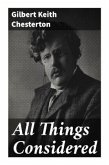In "Pagan Papers," Kenneth Grahame presents a collection of essays that explore themes of nature, nostalgia, and the complexities of modern life through a lens steeped in Edwardian sensibilities. Written in a lyrical style, the essays are imbued with rich imagery and whimsical observations that reflect Grahame's profound connection to the pastoral landscapes of England, often blurring the boundaries between fantasy and reality. This work, produced during a period when industrialization began to encroach on the natural world, serves as both a celebration of rural life and a poignant commentary on the loss of simplicity in the face of progress. Kenneth Grahame, best known for his beloved children's book "The Wind in the Willows," brings to "Pagan Papers" his deep-seated love for the English countryside and his acute observations of human behavior. Having experienced both the joys of countryside living and the constraints of urban existence, Grahame's writing reveals his internal struggles, positioning him as a voice advocating for a return to simplicity amidst the chaos of modernity. His literary milieu, characterized by a blend of nostalgia and social critique, is vividly encapsulated in this collection. For readers seeking to delve into the musings of nature and humanity through elegantly crafted prose, "Pagan Papers" is a delightful exploration that offers timeless wisdom. Whether one is fond of lyrical essays or tales of the natural world, Grahame's unique perspective invites readers to reflect on their own relationship with the world around them.
Bitte wählen Sie Ihr Anliegen aus.
Rechnungen
Retourenschein anfordern
Bestellstatus
Storno








